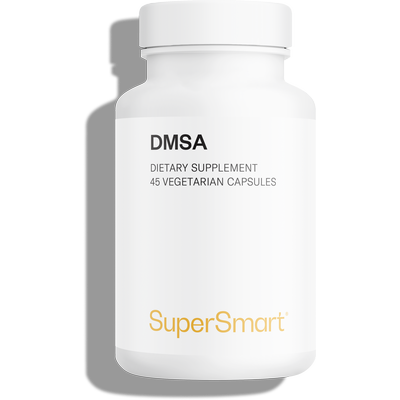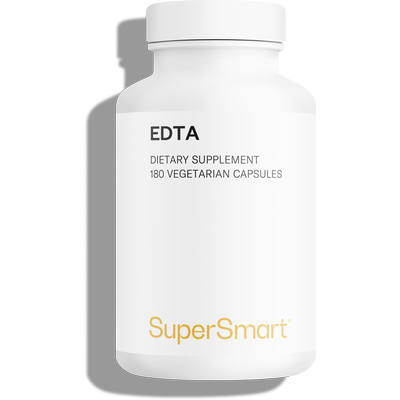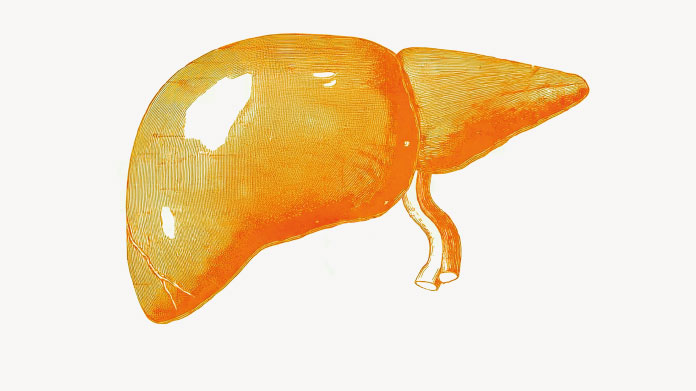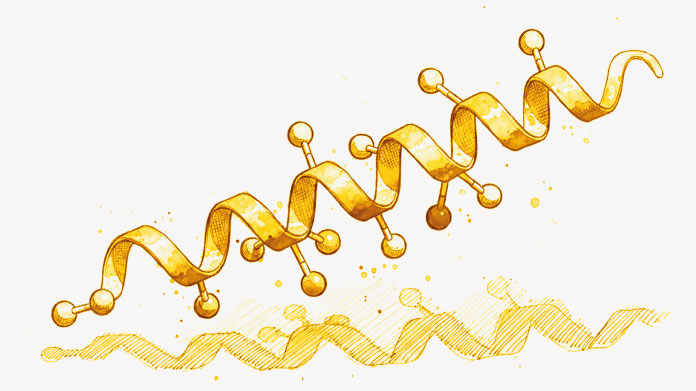Heavy metal chelation: principles and substances used
Very popular in recent years, especially in the field of holistic therapy, chelation is firstly a strictly-regulated medical practice, used in cases of heavy metal poisoning. Let’s find out more.

Chelation: an exceptional medical protocol
Heavy metals and human health
Our bodies naturally contain metals, some of which are essential for a number of enzymatic processes, metabolic functions, etc. These include zinc, selenium and copper (1).
Cadmium, mercury, lead, arsenic and antimony on the other hand, serve no function in the body and are toxic even at low doses. However, these toxic heavy metals are also present in our bodies but in such minuscule amounts as to pose very little risk to our health.
Iron and aluminium are not heavy metals, and while a certain amount of iron is essential for health, the toxicity of aluminium remains difficult to quantify.
Chelation as a treatment for heavy-metal poisoning
While the working principles of chelation were discovered as early as the 19th century, it was not until the Second World War that it was actually put into practice (2).
It was in the 1940s and 50s that chelation therapies were first used, for treating heavy metal poisoning in industrial workers and miners.
The principle behind chelation is relatively simple: a medication is injected intravenously which has the property of binding to the metal cations of the heavy metals present in the body. The heavy metals can then be excreted in urine along with the binding drug.
Still used today, chelation therapy is thus an exceptional medical protocol reserved for severe poisoning in which there’s an immediate risk to life.
Chelation protocol for heavy metals and other compounds
When a patient is suffering from certain health problems or medically-diagnosed poisoning, detoxifying treatments such as chelation can be performed. Let’s take a look at some of these scenarios.
Calcium chelation by citrate
We often hear about calcium chelation by citrate, for example, but what exactly is it? When treating patients who require extrarenal replacement therapy (eg, haemodialysis), usually because of serious kidney failure, doctors may use citrate calcium-chelation protocols because citrate has anticoagulant properties which are vital during extracorporeal circulation (ECC) (3).
Citrate is a weak organic acid that enters the tricarboxylic acid cycle in the form of citric acid. Its anticoagulant action rests on its ability to chelate ionised calcium in plasma with which it then forms a diffusible complex.
So we can see that here, citrate is used in medicine as a chelator in an anticoagulant capacity, rather than to rid the body of excess calcium.
In fact, hypercalcaemia (excess calcium) is usually treated with increased hydration rather than chelation (except in specific cases where drugs are used), the idea being to simply encourage the calcium to be excreted in urine.
Aluminium chelation
Aluminium is present in the body in the form of cations, especially in the case of poisoning, and is thus an ideal candidate for chelation by ethylenediaminetetraacetic acid (EDTA), an organic compound which binds specifically to metal cations (4).
Aluminium is the third largest constituent of the Earth’s crust after oxygen and silicon. As a result, our bodies are constantly exposed to it through the food we eat and the air we breathe. But this exposure is increased further by its extensive use in industry, including cosmetics and pharmaceuticals, because of its many properties and low cost.
Currently, however, the impact on human health of this exposure remains the subject of much debate and it is therefore difficult to place a specific value on aluminium chelation.
Graphene chelation
Graphene is not a heavy metal but a derivative of carbon, which is increasingly used in the form of nanoparticles in new technologies: touch screens, more powerful computers, solar cells, etc.
Graphene is a miracle product for industry but concerned scientists want its potential toxicity to humans to be more accurately assessed before its use becomes widespread, such toxicity being the subject of continuing debate in the scientific community. (5).
At the present time, however, with the exception of those working in factories that use graphene, the risk of poisoning is very small, as the amounts to which our bodies are exposed are minimal.
Nonetheless, some naturopaths recommend graphene chelation protocols, primarily using plants such as chlorella.
Iron chelation
Iron is not a heavy metal either, but elevated levels in the body can lead to general problems such as fatigue, lack of libido or joint pain.
Excess iron is, however, rare and primarily affects people either suffering from haemochromatosis or who have been taking iron supplements for a prolonged period without actually being deficient.
In such cases, doctors sometimes treat excess iron with chelation based on EDTA (6).
Sulphur chelation
Sulphur, again, is not a heavy metal. When we talk about sulphur chelation, we’re actually referring to a detox treatment based on sulphur chelators. Certain sulphur-containing compounds, such as methylsulfonylmethane, are believed to have significant chelating effects. Proponents say they bind particularly well to arsenic and mercury.
Chelation: side-effects and debate
One of the main side effects associated with intravenous chelation, especially EDTA, is potentially serious, even fatal, hypocalcaemia. In poorly-performed chelation, the most common symptoms are low blood pressure, vomiting, fatigue, headaches, seizures and muscle and joint pain (7).
Chelation therapy has been growing in popularity for some years now, especially in non-conventional alternative medicine. Many therapists believe that chelation could be used to treat autism, certain forms of cancer, Alzheimer’s disease and Parkinson’s disease.
But it’s important to state that:
- autism is not a disease and so does not need to be ‘treated’ with any drug therapy. There is no ‘cure’ for autism;
- only the use of chelation therapy for Alzheimer’s and Parkinson’s disease is currently being seriously pursued by scientists. However, such research needs to go further and it will probably be many more years before we see the development of a reliable chelation therapy for these two diseases (8-9).
In any event, intravenous chelation therapy is a strict medical procedure which must only be used in the context of diagnosis, treatment and monitoring by a doctor. Especially if you think you are genuinely suffering from heavy metal poisoning.
However, some people keen to remove all possible traces of potentially harmful or toxic metals from their body opt for easily-accessible oral chelation. Several substances can be used for this (but if you want to try them, be sure to seek advice from a health professional first):
- ethylenediaminetetraacetic acid (EDTA), as mentioned above. Some naturopaths recommend EDTA for eliminating lead, mercury, aluminium and cadmium in particular, as it forms stable complexes with them which can then be excreted in urine (10);
- dimercaptosuccinic acid (DMSA), another major substance in this field. This organic, sulphur-containing compound is usually recommended by these same therapists for lead, mercury and arsenic poisoning. DMSA works in a similar way to EDTA (11);
- humic and fulvic acids. These complex organic compounds, found in soil, sediment and water, are the result of decomposition of organic matter. Studies show they are able to bind to certain organic and inorganic toxins (12);
- zeolite clinoptilolite is a microporous mineral found in volcanic rock. It is used in industry to filter water or remove impurities from the air. Some believe it also helps to eliminate toxins and certain minerals from the body (13).
SUPERSMART ADVICE
References
- SHARMA, Rajesh Kumar et AGRAWAL, Madhoolika. Biological effects of heavy metals: an overview. Journal of environmental Biology, 2005, vol. 26, no 2, p. 301-313.
- AASETH, Jan, CRISPONI, Guido, et ANDERSON, Ole. Chelation therapy in the treatment of metal intoxication. Academic Press, 2016.
- KISSLING, Sébastien, WILSON, Patrick, RIDEL, C., et al.Quelles applications raisonnables pour l'anticoagulation régionale au citrate en épuration extrarénale?: NEPHROLOGIE. Revue médicale suisse, 2012, vol. 8, no 330, p. 452-456.
- FULGENZI, Alessandro, DE GIUSEPPE, Rachele, BAMONTI, Fabrizia, et al.Efficacy of chelation therapy to remove aluminium intoxication. Journal of Inorganic Biochemistry, 2015, vol. 152, p. 214-218.
- https://lejournal.cnrs.fr/articles/le-graphene-est-il-toxique
- RUIVARD, M. Iron chelating therapy in adults: How and when?. La Revue de medecine interne, 2012, vol. 34, no 1, p. 32-38.
- https://www.msdmanuals.com/fr/accueil/sujets-particuliers/m%C3%A9decine-int%C3%A9gr%C3%A9e-et-m%C3%A9decines-alternatives-et-compl%C3%A9mentaires/traitement-ch%C3%A9lateur
- WARD, Roberta J., DEXTER, David T., MARTIN-BASTIDA, Antonio, et al.Is chelation therapy a potential treatment for Parkinson’s disease?. International journal of molecular sciences, 2021, vol. 22, no 7, p. 3338.
- BUDIMIR, Ana. Metal ions, Alzheimer's disease and chelation therapy. Acta Pharmaceutica, 2011, vol. 61, no 1, p. 1-14.
- OVIEDO, Claudia et RODRÍGUEZ, Jaime. EDTA: the chelating agent under environmental scrutiny. Quimica Nova, 2003, vol. 26, p. 901-905.
- APOSHIAN, H. Vasken. DMSA and DMPS-water soluble antidotes for heavy metal poisoning. Annual Review of Pharmacology and Toxicology, 1983, vol. 23, no 1, p. 193-215.
- ALBERTS, J. J. et FILIP, Z. Metal binding in estuarine humic and fulvic acids: FTIR analysis of humic acid-metal complexes. Environmental technology, 1998, vol. 19, no 9, p. 923-931.
- TOMAŠEVIĆ-ČANOVIĆ, Magdalena R. Purification of natural zeolite-clinoptilolite for medical application: Extraction of lead. Journal of the Serbian Chemical Society, 2005, vol. 70, no 11, p. 1335-1345.
Keywords
2 Days
very good expereince
very good expereince
Jelena Đaković
2 Days
Very good products.
Very good products.
Agnes BENDSAK
4 Days
Just OK
Just OK, ordering from company for many years and being safisfied
Lynn Mae
5 Days
Recomendo
Produtos encomendados são recebidos atempadamente e de acordo com o anunciado! Muito satisfeita!
Carla Sofia
5 Days
Everything is great!
Everything is great!
Jonas
10 Days
The delivery was fast and the product…
The delivery was fast and the product is great
SOMMARIVA Gianni
11 Days
Great service and lots of information
Great service and lots of information
Gabi
14 Days
Service Satisfaction
I’m satisfied with the service; it fulfilled what it set out to do.
Anfhony Abreu
17 Days
Original product and fast delivery
Original product and fast delivery. I haven't started it yet, but will do soon.
Vincenza Catania
20 Days
Good quality
Good quality. Good service.
Leonel Guzman
22 Days
Top!!!!!!!!
Top!!!!!!!!
Michael
24 Days
Excellent!
Products are great and delivered fast!
PARDINI Debora
25 Days
From order to receive the product
From order to receive the product, the process is smooth & fast. It’s good to customers.
WONG Mei Ling
26 Days
Fast delivery
very quick delivery to italy. product is good.
Customer
27 Days
Prompt delivry !!👍
Prompt delivry !!👍
SWEET Christine
of experience
your money back
##montant## purchase






